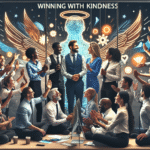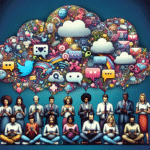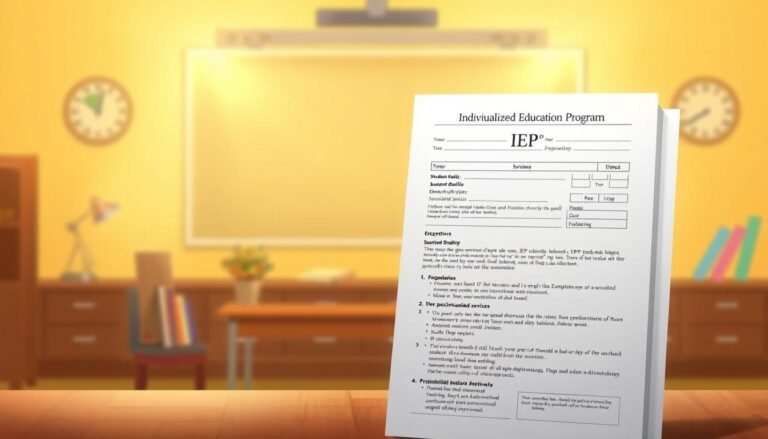Beyond Challenges: Proven Success Stories of Professionals with Learning Disabilities
Introduction
Imagine navigating a world filled with obstacles that seem insurmountable, yet emerging at the other end not just intact, but thriving. The stories we tell about individuals with learning disabilities often focus solely on challenges, but there’s an equally compelling narrative lurking beneath the surface: success. In today’s article, titled Beyond Challenges: Success Stories of Professionals with Learning Disabilities, we delve into the inspiring journeys of individuals who have transformed their perceived limitations into strengths, achieving remarkable success in their careers and lives.
Learning disabilities affect millions worldwide; however, they do not define an individual’s potential. With the right support, adaptations, and a resilient mindset, many professionals with learning disabilities have not only succeeded but have excelled in various fields. This article will explore compelling case studies and highlight actionable insights that reveal how these extraordinary individuals have turned challenges into stepping stones toward greatness.
Understanding Learning Disabilities
To appreciate the achievements of these professionals, it’s crucial to understand what learning disabilities are. They can manifest in various forms, including dyslexia, ADHD, auditory processing issues, and more. These challenges can affect how one processes information, which may lead to difficulties in traditional educational settings and the workplace.
Table 1: Common Types of Learning Disabilities
| Type | Description |
|---|---|
| Dyslexia | Difficulty in reading, spelling, and writing |
| ADHD | Challenges with attention, impulsivity, and organization |
| Dyscalculia | Difficulty in understanding numbers and mathematical operations |
| Dysgraphia | Difficulty in writing and organizing thoughts on paper |
| Auditory Processing | Difficulty in processing auditory information |
The Positive Side of Learning Disabilities
Despite the hurdles, many individuals have discovered that their unique ways of thinking can yield innovative solutions and creativity. Studies show that many professionals with learning disabilities tend to excel in areas requiring critical thinking, problem-solving, and adaptability.
Throughout this article, we will explore stories that illuminate the triumphs of remarkable individuals who have gone beyond challenges to become influential figures in their industries.
Success Stories of Professionals
Case Study 1: Gretchen Rubin – The Writer behind "The Happiness Project"
Gretchen Rubin is a best-selling author known for her work on happiness and human nature. Diagnosed with attention-deficit/hyperactivity disorder (ADHD), Rubin struggled with focus and organization during her school years. Rather than letting these challenges hinder her, she turned them into a drive for deep research. Her ability to hyper-focus on topics of interest allowed her to decode complex concepts about happiness and relationships.
Analysis
Rubin exemplifies how ADHD can lead to deeper insights. Her story highlights that with self-awareness and a passion for learning, anyone can leverage their unique strengths to succeed. By sharing her experiences, she has encouraged countless individuals to explore their paths toward happiness, inspiring many to consider their learning disabilities as assets.
Case Study 2: Richard Branson – The Entrepreneurial Visionary
Richard Branson, the founder of the Virgin Group, struggled with dyslexia throughout his educational journey. Despite facing significant learning challenges, Branson refused to conform to the traditional standards of success that sidelined many students like him. He leveraged his entrepreneurship to establish vast networks and businesses, illustrating that unconventional methods can yield extraordinary success.
Analysis
Branson’s story is both motivating and instructive. By embracing his dyslexia, he formed a unique perspective on problem-solving and risk-taking, traits vital in entrepreneurship. His life demonstrates that learning disabilities do not determine one’s worth or capabilities. By sharing his narrative, Branson encourages others to follow a non-traditional path, reimagining success outside of standard measures.
Case Study 3: Whoopi Goldberg – The Oscar Winner
Whoopi Goldberg, a celebrated actress and comedian, also faced significant challenges due to dyslexia. She struggled in school and often felt isolated due to her learning disability. However, her passion for storytelling led her to pursue a career in entertainment, where she found a platform to express herself. Goldberg has often praised her unique perspective, claiming it contributed to her creativity and innovative approach to her craft.
Analysis
Goldberg’s journey is a testament to the power of creativity. By embracing her dyslexia, she found an avenue for expression that many consider her greatest strength. Her success in various fields shows that learning disabilities can inspire innovation and artistic expression, propelling individuals beyond traditional definitions of success.
Navigating the Workplace with Learning Disabilities
Understanding the individual stories of these professionals is only one part of the equation. Exploring how to create a supportive work environment for individuals with learning disabilities is equally important. Organizations that foster inclusivity can play a pivotal role in unlocking the potential of their diverse workforce.
Strategies for Inclusive Workplaces
Flexible Work Arrangements: Allowing employees with learning disabilities to modify their work environments—like quiet spaces or noise-canceling headphones—can promote focus and productivity.
Mentorship Programs: Pairing professionals with mentors who understand their challenges can foster growth, providing guidance and support for career development.
Adaptive Technology: Utilizing tools like speech-to-text software or specialized learning applications can aid employees in overcoming daily challenges they face.
Training and Awareness: Conducting workshops that raise awareness about learning disabilities can help cultivate empathy and understanding among colleagues.
- Personalized Development Plans: Crafting individualized plans that account for learning styles and preferences can enhance an employee’s capacity to contribute effectively.
Table 2: Workplace Strategies to Aid Professionals with Learning Disabilities
| Strategy | Purpose |
|---|---|
| Flexible Work Arrangements | Encourage focus and reduce stress |
| Mentorship Programs | Provide support and guidance |
| Adaptive Technology | Facilitate easier task management |
| Training and Awareness | Promote empathy and collaborative teamwork |
| Personalized Development Plans | Tailor support channels for individual needs |
Actionable Insights and Resources
While the stories of successful professionals with learning disabilities are inspiring, it’s important to consider actionable insights that can help others on a similar journey. Here are some critical takeaways for both individuals with learning disabilities and those seeking to support them:
Self-Advocacy is Key: Encouraging individuals to voice their needs can foster their empowerment.
Utilize Available Resources: Organizations like the Learning Disabilities Association provide tools and resources for both individuals and employers.
Cultivate a Growth Mindset: Viewing challenges as opportunities for growth can significantly change one’s perspective and approach to achieving success.
Connect with Others: Building a supportive community of peers can provide encouragement and shared learning experiences.
- Set Realistic Goals: Establishing attainable short- and long-term goals can create a roadmap for success, making larger tasks seem less daunting.
Conclusion
It is crucial to remember that learning disabilities do not define one’s capacity for success; rather, they can illuminate paths to unique capacities, insights, and achievements. These stories of resilience, such as those of Gretchen Rubin, Richard Branson, and Whoopi Goldberg, demonstrate that by looking beyond challenges, professionals with learning disabilities can thrive.
As we move forward, let us continue to foster environments where diverse talents can shine and inspire others. Each success story contributes to a broader narrative: that of hope, determination, and ultimately, an unwavering belief in personal potential.
FAQs
1. What is a learning disability?
A learning disability is a condition that affects how individuals process, understand, and respond to information. Common types include dyslexia, ADHD, and dyscalculia.
2. Can individuals with learning disabilities succeed in their careers?
Absolutely! Many successful professionals with learning disabilities have demonstrated that they can not only navigate challenges but also excel in their fields by leveraging their unique strengths.
3. How can workplaces support employees with learning disabilities?
Workplaces can support their employees by providing flexible work arrangements, mentorship programs, adaptive technologies, awareness training, and personalized development plans.
4. Are there resources available for individuals with learning disabilities?
Yes, numerous organizations, such as the Learning Disabilities Association, offer resources, support groups, and educational materials tailored to help individuals with learning disabilities find success.
5. How can individuals with learning disabilities advocate for themselves?
Individuals can advocate for themselves by gaining self-awareness, expressing their needs to colleagues or supervisors, and seeking out resources and networks that provide support.
By emphasizing the journeys of those who have thrived despite their learning disabilities, we can move beyond mere challenges to a world filled with possibilities. As we engage with these stories, let’s recognize that success is not a destination but an ongoing journey—a journey marked by courage, creativity, and collaboration in the face of adversity.
















